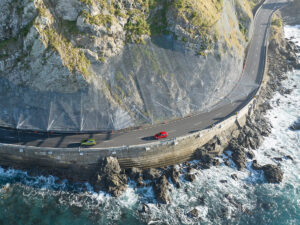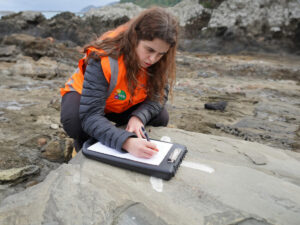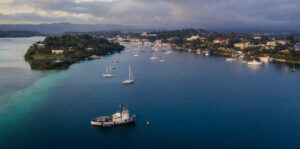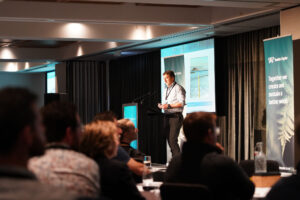Australasian Coasts & Ports 2021 Conference, Christchurch
Wave overtopping of coastal infrastructure such as rail, road and shared pathways can be hazardous to users and potentially threaten structural integrity and reliability. A Trigger Action Response Plan (TARP) provides a robust framework for mitigating risk by defining response actions based on escalating trigger levels. Show more…These actions, and their expected frequency of occurrence can be implemented into construction or operational programs and adjusted as new data becomes available or engineering modifications are made.
This paper presents an overview of this framework applied to a case study at Ōhau Point, north of Kaikoūra, New Zealand. This site was significantly impacted during the November 2016 magnitude 7.8 earthquake with a large landslip inundating both the State Highway 1 road and Main North Line rail corridors. Recovery works undertaken by the North Canterbury Transport Infrastructure Recovery (NCTIR) Alliance reinstated the roadway further seaward and at a lower level than previous due to residual landslide and rockfall risk. A unique combination of steep offshore bathymetry and rock outcrops resulted in focusing of wave energy and overtopping to occur at a higher frequency and magnitude than expected. This overtopping posed risks to the recovery team and the public and potentially to the structure itself during extreme events.
A work programme was initiated to investigate and mitigate this risk. This comprised field data collection including detailed bathymetric and topographic surveys, an offshore wave buoy and camera system, numerical wave hindcast, development of image processing techniques to automatically detect overtopping events and physical modelling of the 3D environment to quantify overtopping flows during typical and extreme events. The programme resulted in the development of a Trigger Action Response Plan (TARP) defining threshold wave and water level conditions for a range of actions including traffic management, road closure and post-event structural inspection. This TARP was successfully used to manage risk while longer term mitigation measures were tested and implemented. The TARP was then modified to incorporate the reduced overtopping magnitude and frequency resulting from the engineering worksShow less…




















